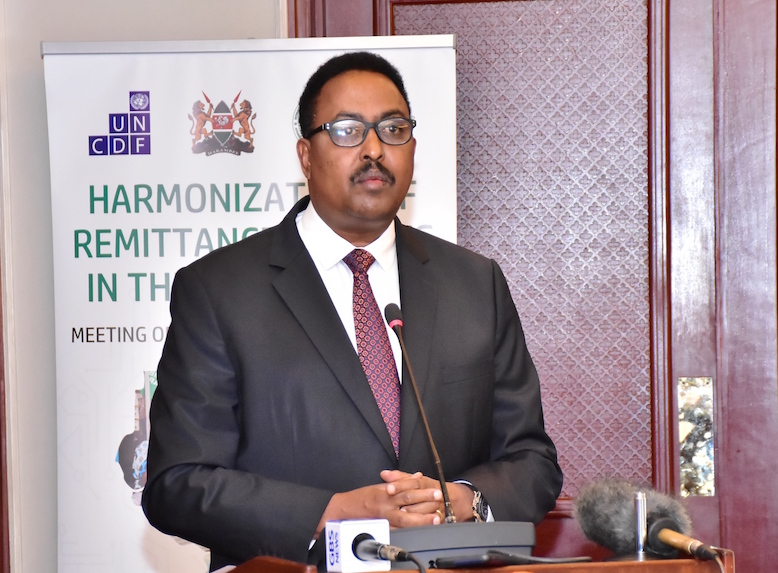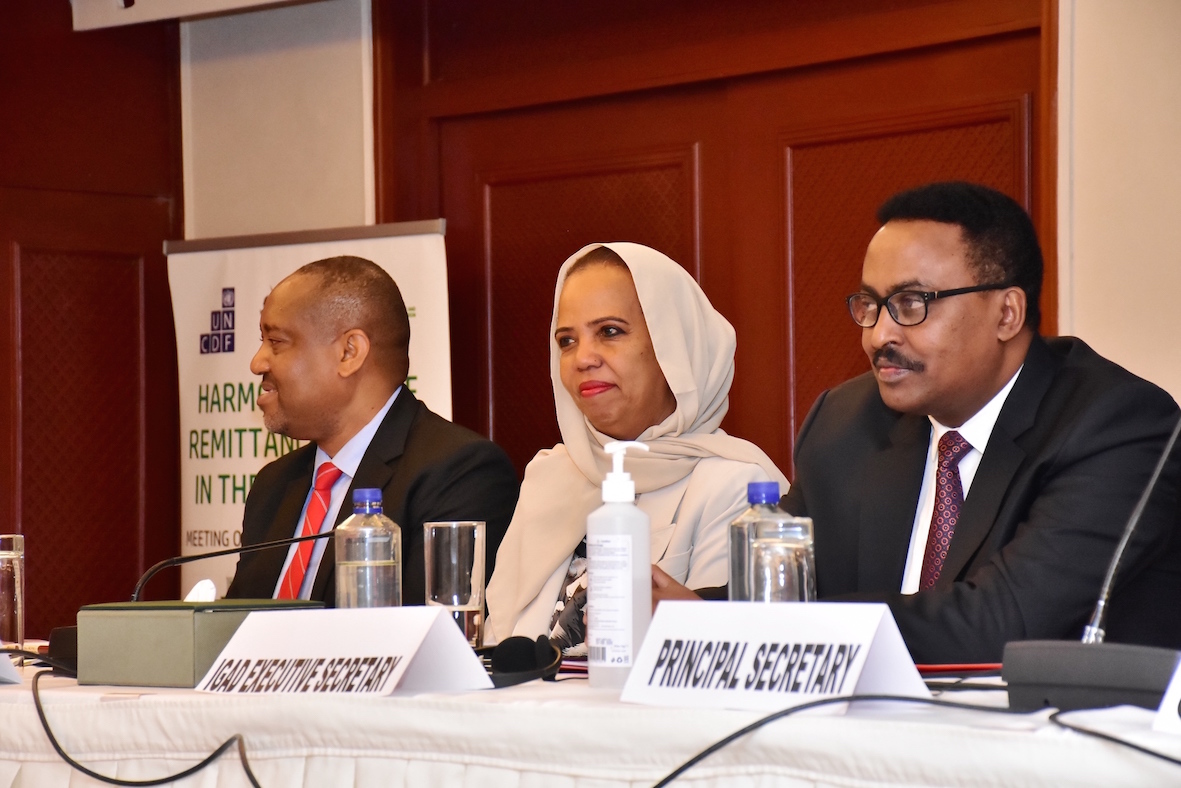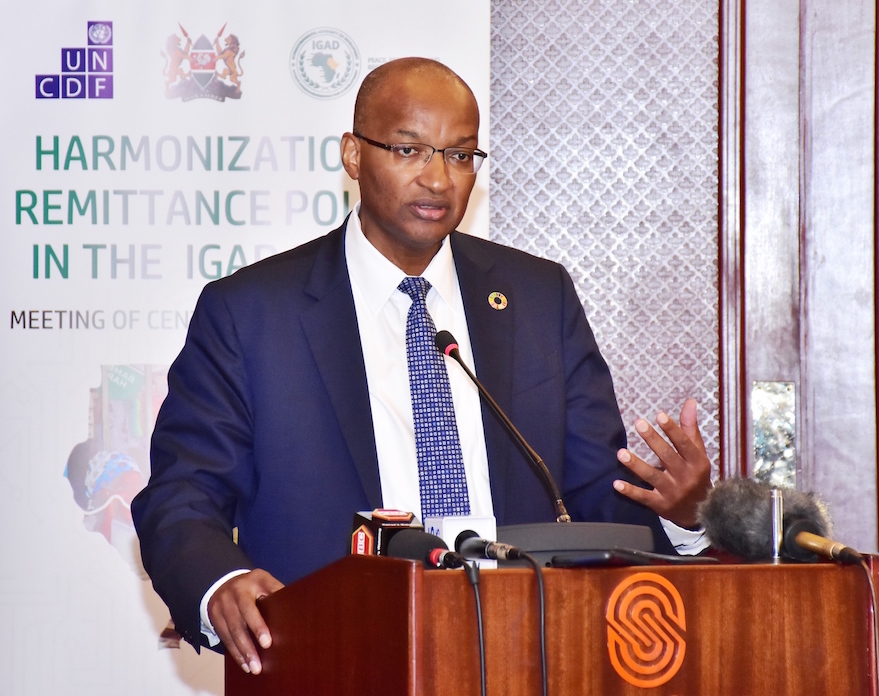![]()
The Intergovernmental Authority on Development (IGAD) in partnership with the United Nations Capital Development Fund (UNCDF) is hosting a two-day meeting for Governors of Central Banks from IGAD Member States.
The objective of this two-day governors meeting is to review, discuss and endorse an action plan for the implementation of the regional roadmap for the harmonisation of remittance policies across IGAD member countries.
In that endeavour, the meeting will receive an update on the progress made in the implementation of the Regional Harmonization of Remittance Policies Project since its inception in 2021.

The initiative aims towards unlocking the huge potential of migrant’s remittances for Sustainable Development. In addition, the meeting will receive a debrief on the meeting that endorsed the regional roadmap for the implementation of the harmonization of remittance policies, its implementation approach, timelines, and performance indicators.
‘The sacrifice our brothers and sisters abroad make to send money back to us here at home is bigger than both official development assistance and foreign direct investment combined. Remittances are the reflection of us investing in ourselves and each other. However, despite this significant importance of remittances, the costs and volumes of sending money to the IGAD region are still high compared to other parts of the world,’
noted IGADExecutive Secretary Dr. Workneh Gebeyehu
He added that the average cost of sending remittances to the IGAD region is 8.9%, compared to the global average of 6.5% and this is nearly 3 times the Sustainable Development Goals target rate of below 3%.
‘This high cost is a significant burden on the millions of households that rely on remittances to make ends meet. Additionally, the cost of intra-regional remittances transfer among the IGAD Member States stands at 10.6% which is significantly higher than the rate of sending money to the region. This means that it costs more for us to send money among ourselves than it costs for our diaspora brothers and sisters to send to us,’
he noted.
The bottlenecks to the smooth inflows of remittances within and to the region will also be deliberated on by the governors. Remedial actions to reduce the impacts of those challenges will be proposed for future consideration.
The Governors of Central Banks discussed and agreed to appoint a Single Point of Contact (SPOC) from each of the Member States for the day-to-day implementation of the action plan and a Regional Steering Committee constituted by one member from each of the Member States.
Harmonisation for this project entails all the processes by which policies, regulatory frameworks and standards concerning approved remittances/payment infrastructures establish similarity of processes and services or a mutual understanding of the information provided according to these policies, regulations, standards, and payment interoperability infrastructures.
The processes may include aligning similar laws, regulations and standards and/or determining equivalence focusing on core issues in the areas of licensing and authorization regimes; electronic money (especially mobile money); payout networks on agencies; customer on boarding on risk-based know-your-customer (KYC); consumer protection; foreign exchange regulations and interoperability of payment infrastructure.

Regional harmonisation of remittance policy and regulatory frameworks provides opportunities to deepen financial markets, make monetary policy more successful, reduce supervision and implementation costs, and open remittance service access to a broader population, thereby fostering economic growth.
Moreover, it provides for more streamlined supervision, better interconnected financial services, and the proliferation of new technology as cross-border remittance service providers (RSPs) transfer know-how to other Member States.





